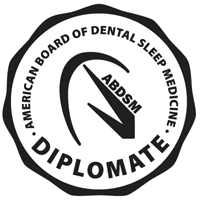Home Sleep Study – Seattle/Mill Creek
To be diagnosed with a sleep disorder (such as sleep apnea), it’s usually necessary to have a sleep study. This involves coming into the sleep laboratory for a night, to sleep there while being monitored.
While getting the diagnosis of a sleep disorder could potentially lead to life-changing (even life-saving) treatment for a problem like sleep apnea, the sleep study process is uncomfortable for many. Sleeping in the unusual environment of a laboratory can be difficult, and arranging to spend a night away from family and other obligations can also be a challenge for many people. Unfortunately, some find this process so inconvenient that they never have their recommended sleep study, meaning that they miss out on all the benefits that they could receive.
There’s a new alternative available. Mill Creek Sleep Dentistry is now offering home sleep testing as an alternative to traditional laboratory sleep studies.
What is a home sleep study like?
For a home sleep study, we’ll provide you with several pieces of equipment, as well as training on how to correctly use these. Although the exact equipment used can vary, it includes a fingertip sensor to detect oxygenation of the blood, a chest strap to detect breathing movements, and a small tube near the nose to detect airflow. Sometimes, more pieces of equipment may be used.
The sleep study process is simple. You put on the equipment just before bed, then go to bed as usual. It will be recording data all night. You then take it off in the morning and return it to our office, so we can access and interpret the data. After we’ve had time to complete this analysis, you’ll come in for a follow up appointment. We’ll discuss the results with you, and inform you of your treatment options (if treatment is needed).
Home sleep studies are extremely reliable under the right conditions. Of the approximately 3.5 million sleep tests ordered each year, it’s estimated that about 75 to 80% could be carried out at home.
What are the advantages and disadvantages of a home sleep study versus a traditional sleep study?
When people sleep in a laboratory, they sometimes have a hard time sleeping because of the changes in the environment, which can skew the results. By allowing the patient to sleep in their own familiar environment, the results of the test may be better.
Most people also greatly prefer a home sleep study. With traditional laboratory sleep studies, many people skip the study because it’s just too much hassle. At home, the follow-through rates are much higher. Because there’s no need to schedule at a facility, there’s very little waiting time for a home sleep study, with many people completing their study the day after they contact us to request it.
With a home sleep study, the results are analyzed in exactly the same way as those from a traditional sleep study, by sleep medicine professionals using software that detects the important patterns.
Sometimes, one of the sensors may slip off during the night. When this happens in the laboratory, a sleep technician will enter the room and replace the sensor. However, when it happens at home, often no one will notice and replace it. That means the sleep study needs to be repeated. For most people, having two sleep studies at home is preferable to having one in a lab; however, it’s important to be aware of this possibility.
Am I a candidate for a home sleep study?
For diagnosing obstructive sleep apnea and other disorders of breathing during sleep, home sleep testing has been shown to be an accurate test. However, for certain other sleep problems, it’s not effective, so it won’t work for everyone. This is because more complex monitoring is needed to diagnose certain types of sleep problems.
Those who have signs of excessive daytime sleepiness and fatigue are good candidates for a sleep study. There’s a validated questionnaire that can determine whether your daytime sleepiness constitutes a possible medical problem. Those who have other possible signs of sleep apnea, such as severe snoring or pauses in breathing noticed by a roommate or bed partner, those who have headaches upon rising, severe reflux disorder, or high blood pressure, should strongly consider being tested. Similarly, because being overweight is a risk factor for sleep apnea, those with a body mass index (BMI) of 30 or greater, combined with daytime sleepiness, should strongly consider testing. Sometimes, sleep studies are recommended in other circumstances; for instance, your surgeon may recommend a sleep study before you have surgery.
Home sleep study in Seattle/Mill Creek
At Mill Creek Sleep Dentistry, we offer home sleep studies to our patients who meet the criteria. If you need to have a laboratory sleep study instead, we’ll talk to you about why and refer you to an excellent center. Most patients with excessive daytime sleepiness can benefit from a home sleep study. To find out more, contact us to schedule an appointment for a consultation. When people get treatment for sleep apnea, their whole lives improve – mood, energy, productivity, overall health. Why wait any longer? You don’t have to keep suffering. Sleep medicine can help.





